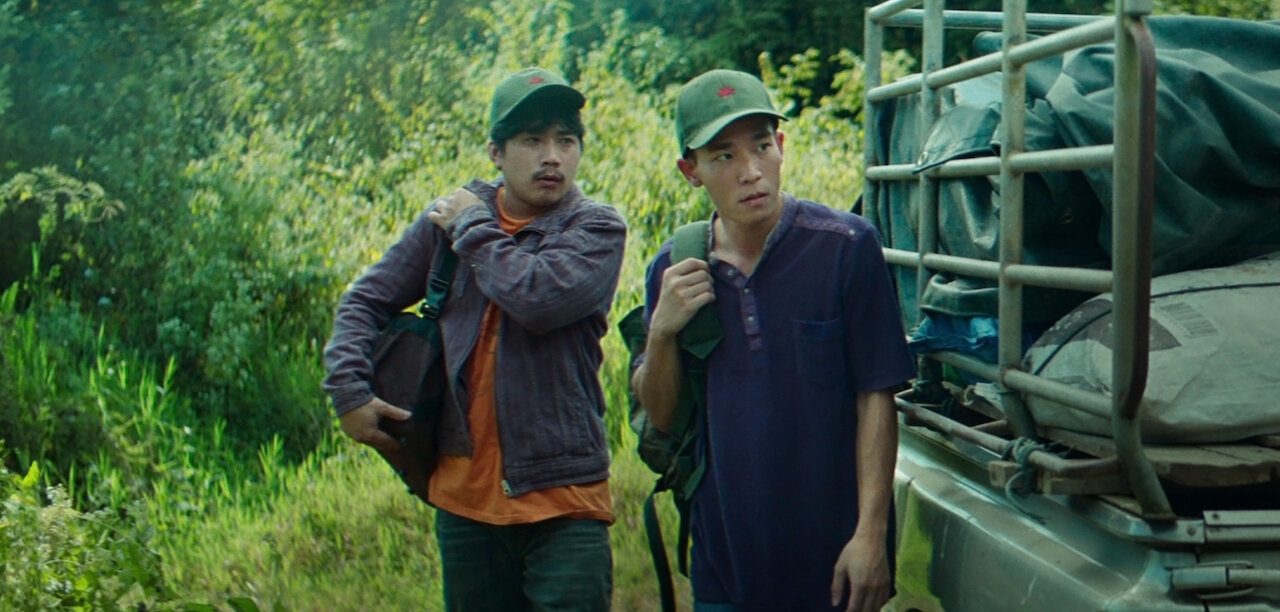Is There a Real-Life Inspiration Behind Netflix’s Doi Boy?
Navigating the complexities of immigration is an experience known to a select few, and Netflix’s ‘Doi Boy’ fearlessly delves into this challenging world. The film follows the intertwined lives of three young men living on the fringes of Thai society. The first is an undocumented immigrant man, who works as a gay prostitute in spite…
Navigating the complexities of immigration is an experience known to a select few, and Netflix’s ‘Doi Boy’ fearlessly delves into this challenging world. The film follows the intertwined lives of three young men living on the fringes of Thai society. The first is an undocumented immigrant man, who works as a gay prostitute in spite of being a heterosexual man. The second is his customer and the third is a political activist on the run. The film weaves their story into the broader nexus of justice and personal freedom.
Directed by Nontawat Numbenchapol, ‘Doi Boy’ marks his transition into the realm of fiction feature films, departing from his earlier documentary work focused on political and social issues. Numbenchapol assembles a talented cast, including Awat Ratanapintha, Arak Amornsupasiri, and Bhumibhat Thavornsiri, to bring his vision to life. Having previously dedicated himself to unveiling the genuine stories of people, the audience anticipates discovering the extent to which truth is interwoven into this narrative, exploring the complexities of immigration, personal struggles, and societal norms.
Inspiration Behind Doi Boy
While ‘Doi Boy’ is not based on a true story, it serves as a poignant reflection of the experiences encountered by many individuals in similar situations. Written by Homsap Chanchana, Prasongsom Koonsombat and Prakit Laemluang, the film delves into the authentic problems prevalent in Thai society, offering a fictional narrative that closely mirrors the challenges faced by real people. Talking about how the film came to be, director Numbenchapol said, “I developed the film over five years, and the script changed a lot over that time, just as there were many important events that changed my country over that same period. I started with ethnic minorities and gender issues, but as the character moves to Thailand they have to give up their dream and face up to another set of social issues. These include corruption and environmental issues too. But I think the biggest topic in my film is how everyone starts out with a dream, but that dream is not safe because of the social situation.”

Undocumented immigrants in Thailand grapple with a host of challenges. Many face issues related to employment, as they often work in low-wage sectors without legal protection and the lack of official documentation leaves them vulnerable to arrest and deportation. Access to healthcare, education, and social services is limited, exacerbating their marginalized status. Discrimination and social stigma further compound their struggles, making it difficult for them to integrate into the broader community. Sorn, the sex worker’s narrative, serves as a powerful microcosm, illustrating the broader challenges and vulnerabilities experienced by these people and offers viewers a glimpse into the harsh realities of their lives.
Political activism in Thailand faces significant challenges due to the harsh suppression imposed by the government. The country has witnessed a series of political upheavals and coups, leading to an environment where dissent is often met with severe consequences. Activists advocating for political reforms or expressing dissenting opinions against the government’s policies frequently encounter legal repercussions, including arrests, charges of lese-majeste (insulting the monarchy), and imprisonment. Through the story of Wuth, the political activist, the film reflects broader concerns about human rights and civil liberties, highlighting the complex dynamics between those in power and those seeking to voice their opinions and bring about change.
‘Doy Boy’ bravely confronts the larger social issues in Thailand and holds up a mirror to society. Although not based on a specific true story, the film encapsulates the experiences of many individuals whose narratives remain untold due to societal taboos and the inclination to conceal unpleasant realities. By exploring the struggles of its characters, the film aims to leave an indelible mark on the audience, fostering awareness and understanding of the challenges confronted by those on the fringes of society.
